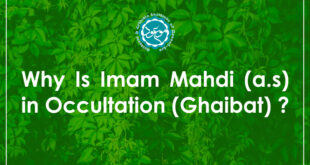Moral conduct
Moral conduct is a mood arousing good behavior with others by showing happy mien, nice wording, and kind manners. As he was asked about the limit of moral conduct, Imam as-Sadiq (a) answered:
“It is to be modest, speak honorably, and meet your brother cheerfully.”
One of the expectations that every judicious individual exerts efforts for achieving is to have an attractive personality. It is surely a noble aim that cannot be attained by everyone except the virtuous and those who are characterized by knowledgeability, liberality, courage, and the like good traits.
All virtues, however, cannot be true matters of admiration unless they are connected to moral conduct. On that account, moral conduct is the core and pivot of virtues. The Ahlul-Bayt (a) used a variety of instructive methods in favor of glorifying the moral conduct so remarkably:
The Prophet (S) said: “The best of you are the most well-mannered and generous ones who go on intimate terms with people and people go on intimate terms with them, and whose places of residence are frequently trodden on by guests1.”
“He who has a good nature will have the reward of those who observe fasting in days and keep awake praying at nights2.”
“You cannot treat people by means of your wealth; hence, you should treat them by means of your moral conduct3.”
Imam al-Baqir (a) said: “The most perfect believers4, in the sight of faith, are the most well-mannered5.”
Imam as-Sadiq (a) said: “After the fulfillment of the obligatory religious duties, the most favorable thing that a servant offers to Allah is to extend the moral conducts over people6.”
“Allah gives a servant for his moral conduct the same reward that He gives to the mujahid7.”
“The moral conduct dissolves sins in the same way as the sun dissolves snow8.”
“Piety and moral conduct construct the countries and prolong the ages9.”
“If you want to be respected, you should be lenient, and if you want to be disrespected, you may be severe10.”
God did not send any messenger to people before He had adorned him with moral conduct, which is, then, the symbol of the prophets’ virtues and the title of their personalities.
The Prophet Muhammad (S) was the ideal example of moral conduct, as well as the other high moral standards. By means of his ideal moralities, he could seize the hearts, and deserved, worthily, the praise of God:
“Most surely, you conform yourself to sublime morality. (68:4)”
Imam Ali (a), describing the moralities of the holy Prophet (S), said:
“He was the most generous, the bravest, the most truthful and the most faithful, and in terms of temper, the most lenient and in terms of association, the most honorable. Any one seeing him for the first time is filled with awe, and any one associating with him loves him. I have never seen his like before and after him11.”
As a picture of the Prophet’s moral conduct, it is sufficient to refer to his story with people of Koreish12 who allied each other against him and showed him various sorts of bitterness that obliged him to flee his hometown. When God gave him victory against them, they were quite sure he would revenge himself upon them. He said nothing to them but, ‘what do you think I am going to do with you?’ ‘Only the good, for you are a noble brother and the son of a noble brother,’ answered they. He said: ‘I will repeat the same wording of my brother Joseph the prophet: (Today, you are not condemned.) Go, you are released.’
Anas narrated: I was with the Prophet who was putting a garment of a tough margin when a Bedouin pulled him so violently that the margin of his garment left an effect on his neck. ‘Muhammad,’ said the Bedouin, ‘load on my two camels with the fortune of God that is in your possession, because it is neither yours nor your father’s.’
The Prophet (S) kept silent for a while before he said, ‘The fortune is Allah’s, and I am His servant.’ He then added, ‘Do you, Bedouin, not think you will be retaliated for your deed?’
‘No, I do not,’ answered the Bedouin.
‘Why?’ asked the Prophet.
The Bedouin said, ‘Because you do not set evil for an evil.’
The Prophet laughed and ordered to load on the back of the Bedouin’s camel with barley and wheat13.
Amirul-Mu’minin14 (a) narrated:
The Prophet (S) told the very rich Jew whom he had owed a few dinars15 that he had nothing to pay him back at that time. The Jew decided not to leave the Prophet before he would pay him. The Prophet therefore sat with him. In the same place, he offered the Dhuhr, Asr, Maghrib, Eshaa, and Fajr prayers. As he noticed that his companions were threatening that Jew, the Prophet (S) looked at them and said, ‘What are you doing?’ ‘God’s Messenger,’said they, ‘he is detaining you.’ The Prophet answered, ‘Allah has not sent me to wrong any person, including the followers of other religions.’
As soon as the day broke, the Jew declared, ‘I declare there in no god but Allah and that Mohamed is His servant and messenger. I will dedicate half of my fortune to the cause of God. By God I swear, I only did so to notice the conformity of your descriptions to these that are mentioned in the Torah. I have seen your characteristics in the Torah: Muhammad son of Abdullah, the born in Mecca, will emigrate to Teeba. He is neither rude nor coarse nor abusive nor adorned with obscenity. I declare there is no god but Allah and you are surely the messenger of God. This is my fortune: I offer it to you so that you will apply to it the rules that God has revealed16.’
Thus were the sinless Imams with regard to the excellence of moralities:
Imam Abu Muhammad al-Askari (a) related:
Amirul-Mu’minin (a), once, received the two faithful men who visited him so warmly, honored them, and asked them to sit in the head of his session. They were a father and his son. After they had finished the meal that the Imam served to them, Qanbar his servant brought a washtub, a wooden pitcher, and a handkerchief. Amirul-Mu’minin (a) took the pitcher to pour water on the hands of the guest. The man refused so intensely, but Amirul-Mu’minin insisted on pouring water on his hand and asked him to behave as if it was Qanbar who would do so to him. The man did. Amirul-Mu’minin, then, handed the pitcher to his son Muhammad Ibn al-Hanafiyya and said, ‘son, if that son had visited me alone without his father, I myself would have poured water on his hand. Allah does not accept to put fathers and sons on the same level when they are in the same place. Since the father poured on the hands of the father, the son then should pour on the hands of the son.”
Hence, Muhammad poured on the hands of the son. On this event, Imam al-Askari (a) commented:
“He who copies Ali in this deed is the true Shiite17.”
 Mouood Mouood English Edition
Mouood Mouood English Edition




